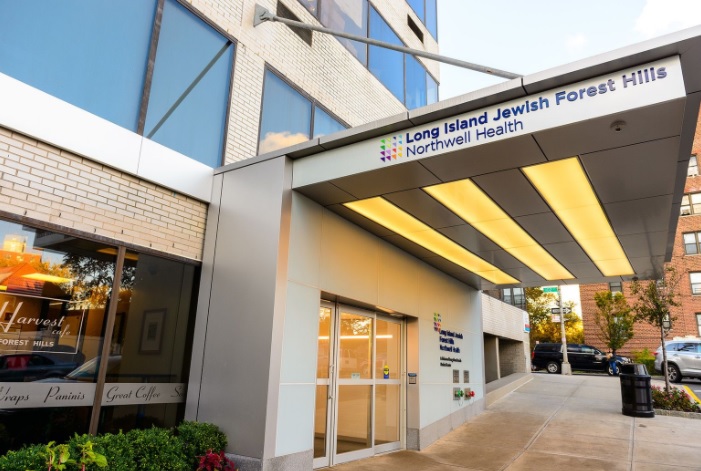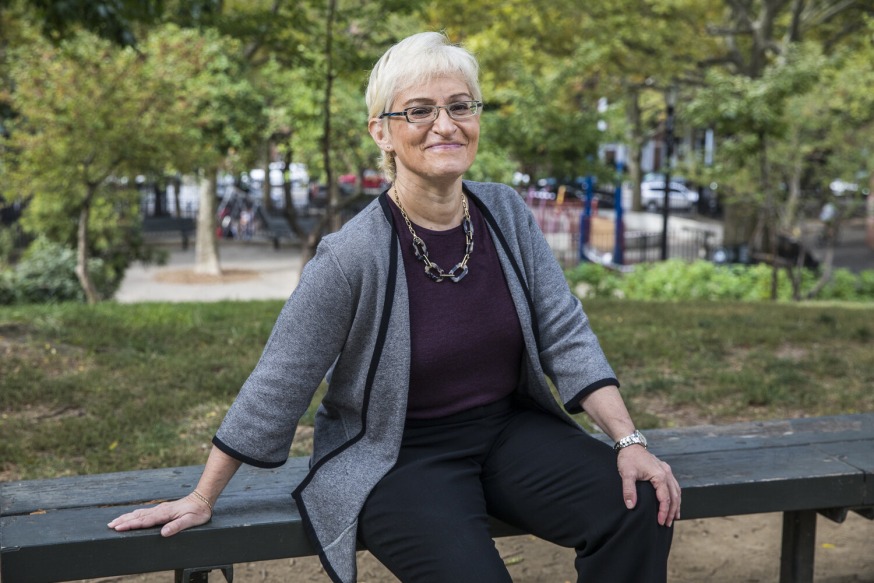
Long Island Jewish Forest Hills Northwell Health (Photo: LIJ)
April 7, 2021 Op-Ed By Lynn Schulman
Rebuilding hospital capacity in Queens is a matter of life or death.
A study released late last year by NYC had a grim finding – as the pandemic overwhelmed the city, 30 percent of patients hospitalized because of COVID ended up dying. New Yorkers grew accustomed to seeing pictures of mobile morgues and patients struggling to survive in hallways.
In my home borough of Queens there are only 1.8 hospital beds per 1,000 residents as compared to five beds for every 1,000 Manhattan residents. Elmhurst Hospital and Northwell Forest Hills became national symbols of the seriousness of COVID, with Elmhurst experiencing 13 deaths within a 24 hour period at the height of the pandemic while Northwell Forest Hills experienced 17 deaths within a 24 hour period. This is totally unacceptable.
Based on the unnecessary deaths that occurred in Queens, you would think hospital capacity would be expanded. But, instead, New York State wants to decrease capacity. St. John’s Episcopal Hospital in Far Rockaway, Queens has been a lifesaver for its pandemic-ravaged community, as the only hospital on the entire peninsula–which the New York Times dubbed “One of New York’s Deadliest Zip Codes.”
Like many Queens residents, lawmakers, and activists, I was bewildered and dismayed to learn of the state’s proposals to drastically cut capacity and services to an already underfunded and under-equipped hospital that valiantly stepped up to help during the pandemic.
The state health department and a consulting firm presented hospital administrators with several cost-cutting options. The most drastic would take the hospital down to 15 beds. Thankfully, through blowback from the community and elected officials, drastic cuts to the hospital were “temporarily halted.”

Lynn Schulman (schulman2021.com)
We may not have known that a pandemic would hit New York in 2020, but New York City has made decisions over the past several decades that led to such a sorry state of affairs.
In Queens alone, 10 hospitals were shuttered over the past 20 years as a giveaway to the real estate industry. The thinking was that the city had excess capacity and more focus should be on preventing the root causes of hospitalizations.
The hospital property could then be repurposed by the real estate developers. Considering the industry’s track record, we should have known that we’d regret not keeping public land for public uses.
And while focusing on preventative medicine is of course laudable, the city also clearly failed on that count. The most vulnerable residents in the city were also the most impacted by this virus.
I have dedicated my personal and professional life to health care advocacy. It was borne out of my experience in the LGBTQ community during the AIDS epidemic when I saw a generation of my friends and neighbors die because of the indifference of those in power to those in my community.
I see so many parallels between that shattering experience and our current moment: with so many black and brown New Yorkers slaughtered by the coronavirus.
Hospital capacity in Queens must be increased. It is the most urgent priority for Queens residents because we can’t afford to not have emergency care locally available when we need it most.
I will introduce legislation to add a hospital capacity and health care impact assessment to every zoning and land use proposal. We need to understand how new development impacts health care access before something is built, not afterward when it is too late.
I will be a leader on creating a Hospital Capacity task force to rebuild hospital capacity throughout our city but especially in Central and Southeast Queens. As a priority, we must ensure capital dollars are dedicated to building more hospital capacity, creating more hospital beds, and expediting the process so we are safer in the future with local access to world class emergency care within our communities.
So as cases again rise, and as hospitals again face a possible shortage of beds, we have to use this moment to reflect on what we want the city’s healthcare system looks like in the future. Hospital beds may not be something the average New Yorker thinks about, but with COVID, the number of available beds is a matter of life and death.
Lynn Schulman is a candidate for the 29th City Council District. The district covers Rego Park, Forest Hills, Kew Gardens and Richmond Hill.
One Comment

“In Queens alone, 10 hospitals were shuttered over the past 20 years as a giveaway to the real estate industry…” Patently false…our sanctuary city policy led to throngs of illegals flooding the emergency rooms of our hospitals for free healthcare…the hospitals are not eligible for re-imbursement for illegals so they went bankrupt due to failed progressive policy…please stop spreading false narratives…sanctuary city policy is responsible for the deaths of thousands of New Yorkers who worked hard, paid their taxes, fought in wars and built this country….then when they needed a hospital bed none were there because of these failed policies…..what a disgrace